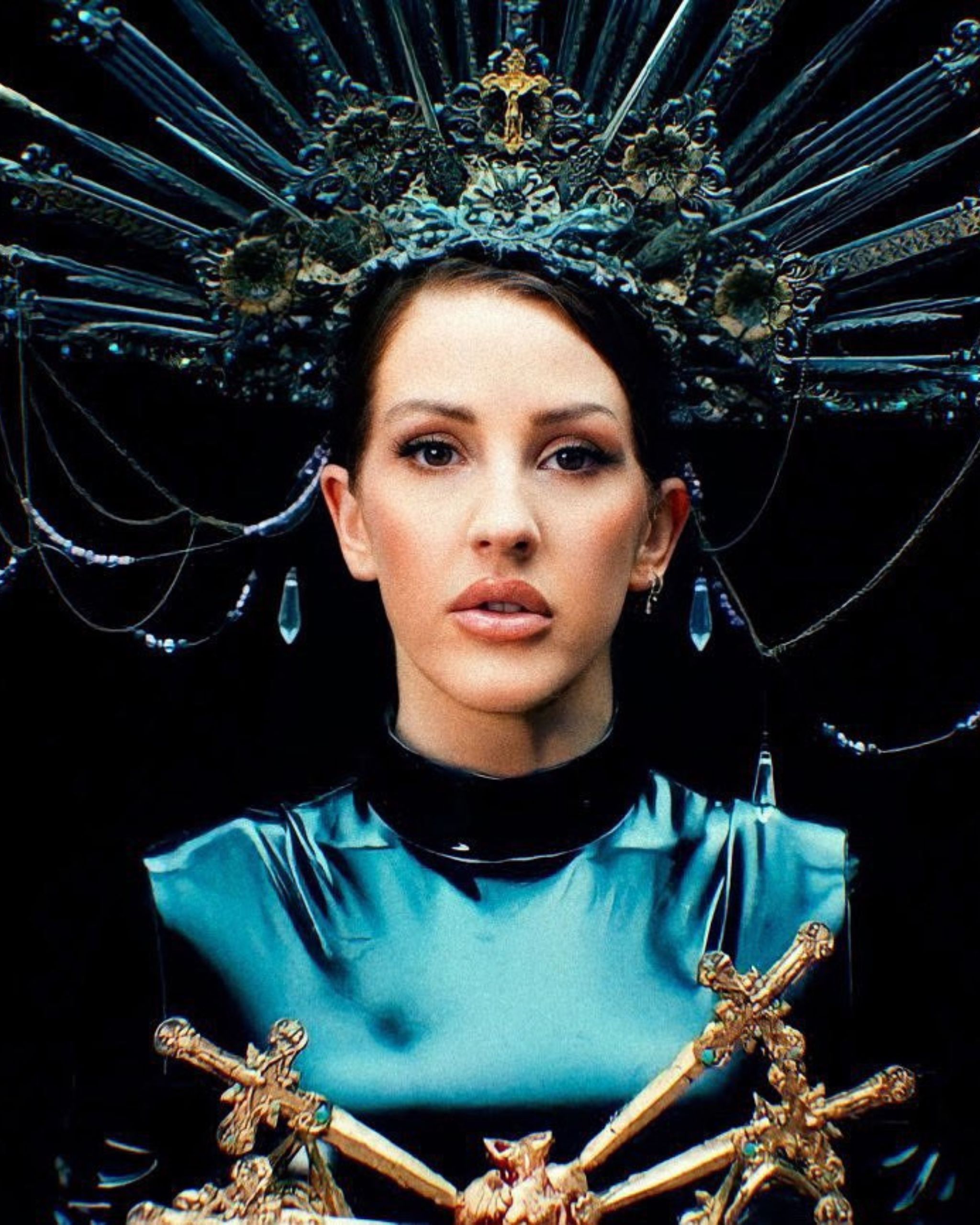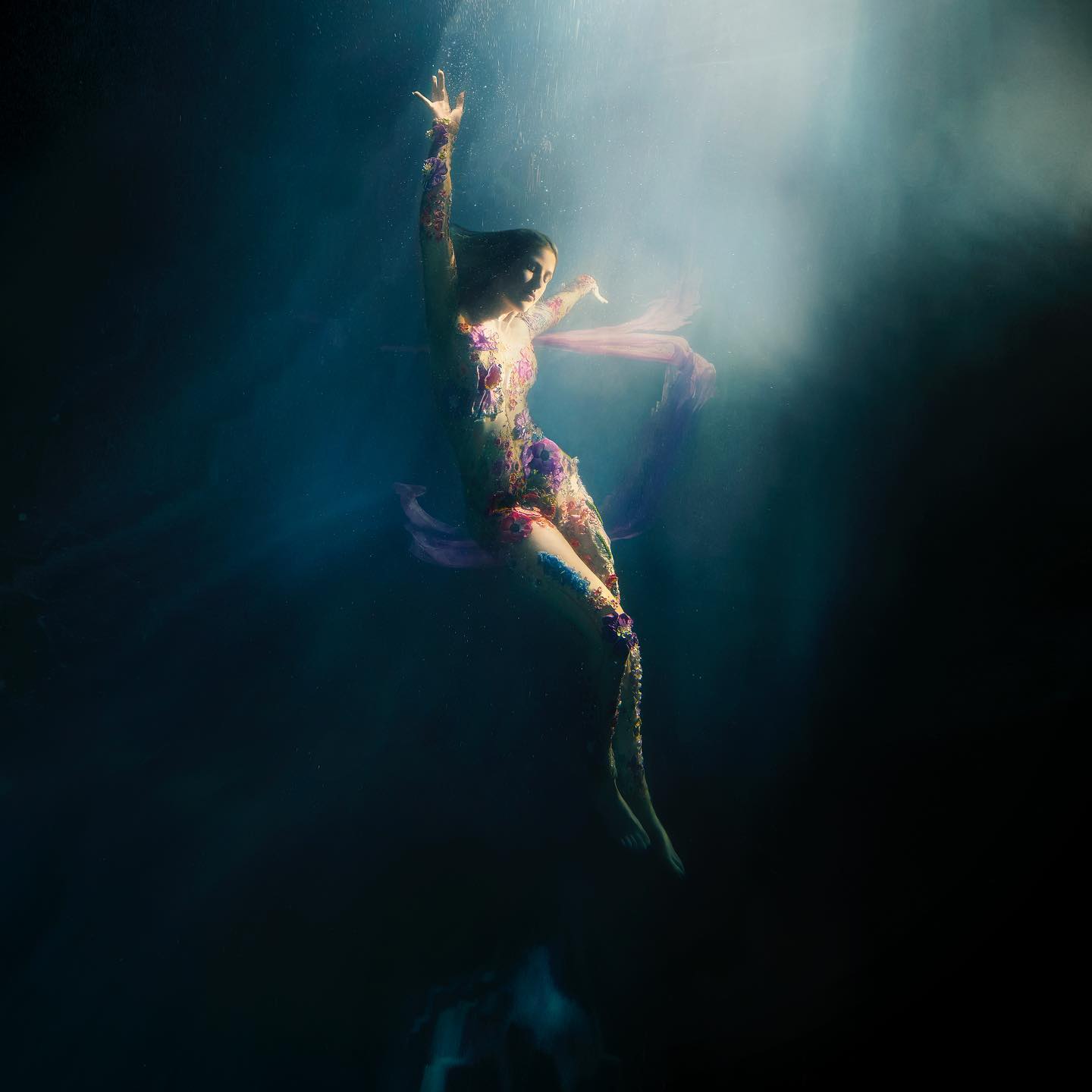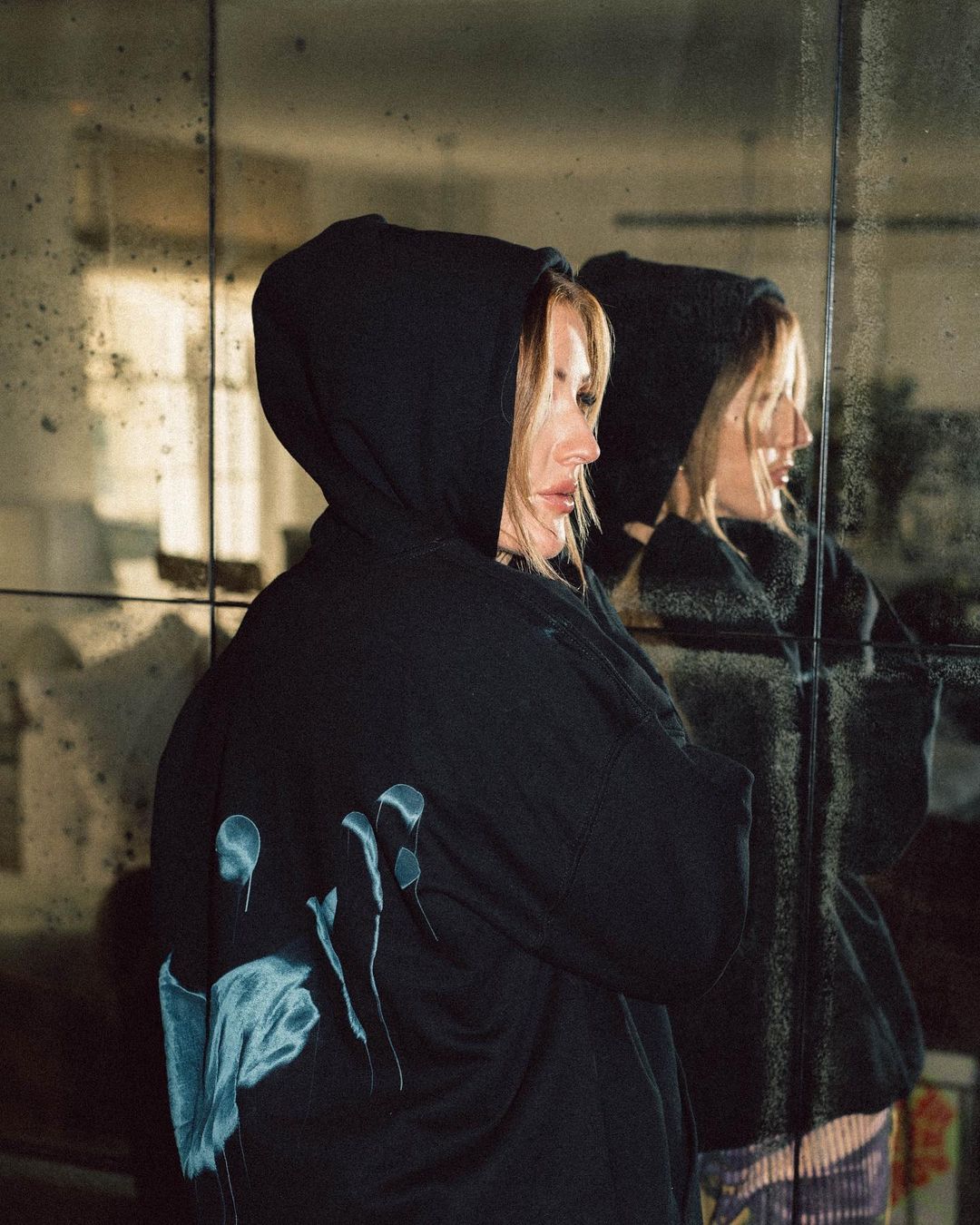The “Love Me Like You Do” and “Lights” singer talks to Vogue Philippines about creating her latest album.
Whether or not you describe yourself as an avid fan of Ellie Goulding, there’s no doubt you’ve heard her music before. The chart-topping singer-songwriter’s songs regularly surpass the million-view mark on Youtube, with several hits garnering over a billion. Goulding has also been recognized by major institutions like the United Nations and WWF, for her philanthropic work, which she’s made sure to keep up with throughout her career.
Two years have passed since her last release, Brightest Blue. The highly anticipated arrival of Goulding’s fifth studio album marks several firsts and milestones in her life. Titled Higher Than Heaven, Goulding’s fresh drop marks the first music she’s made since the pandemic and since becoming a mother.
Set to launch on April 7, Goulding has previously described this body of work as a response to the pandemic. The award-winning musician tells us that though this is true, the record is more of a joyful reaction; something to elevate our spirits rather than a solemn reflection. Between the pandemic and motherhood, she tells us, “I’m not ready to make that album yet. I feel like that’s something that’s gonna come later on.”
You’ve explained that Higher Than Heaven was written in response to the pandemic. Can tell me about what jumpstarted this idea?
I think it was a combination of becoming a mom, which was incredibly surreal, along with the surrealness of the entire lockdown, which I think we’re still processing. For me, I just wanted to make upbeat, uplifting pop records inspired by the ’80s, ’90s, and ’00s, and all my influences. And also, it was just an opportunity for me to break away from the kind of zone I was in for Brightest Blue, which was much more personal and introspective, and then to go into songs that were simplistic and universal.
Usually, I’m very involved in the tracks, but this time it was very much leaving it to the producers, and I would focus on the melodies and lyrics. That’s kind of what I love to do. It was very collaborative, and everybody was in the same mood. Everybody wanted to have fun and get enjoyment from being around other creative people, making just fun pop songs, to be honest. That’s really what the mission was.
Who were your main influences that may have inspired the sound of this album?
To be honest, one of the biggest influences was the Weeknd. I’ve known him for a long time, I’ve loved his musical journey, from the darker stuff in the early days to working with Max Martin and those guys in Sweden. It just seems to work for him, and he’s kind of made this character around the latest record. To me, that was really inspiring.
There’s definitely a lot of that, and there are even hints of, I don’t know, Abba in there, Phoenix. I kind of really go between folk, electronic, and classical. There are so many genres of music that I’ve fallen in love with over the years. Music has always dominated my life, so in every era of music that has existed since I’ve been alive, I’ve just always been switched onto.
I also went into a deeper place with motherhood and coming out of the pandemic. But I think, I’m not ready to make that album yet. I feel like that’s something that’s gonna come later on.
Did the album evolve conceptually in any way when you were writing it?
I think once we’d written “Cure For Love,” which was just a straight-up, straight from the 2000s, dance record, there were so many different influences in that song from Janet Jackson to The Knife. Once we got that, I think “Like A Savior” came after that, which was more Stevie Nicks inspired in the chorus.
Then we just ended up on this journey of, what can we do next? What can we push next? What doesn’t sound like anything else but is still a great pop record, and still has this universal feeling? And that’s kind of how [it happened], there was no plan of “this is the album going to make.”
You’ve always had such a distinct style, not just with music but in your visuals too. What drew you to the underwater theme for this record?
It was just very self-indulgent, I’ve just always wanted to do it! I love the idea of being underwater, and I do love being underwater. I was lucky enough to go snorkeling in Sharm El Sheikh for COP27 recently, and it was just the most beautiful experience.
I didn’t necessarily want it to look like I was underwater, I think I just wanted it to look like I was in another world, and I was just existing in this void, but like a good void, of happiness and joy. I definitely have a theme in my albums of escapism, and so that’s how I wanted it to look.
What’s your favorite part of the creation process, writing an album?
The best bit is when you’ve written a song, you’ve recorded it, and you get to the part where there’s a muscle memory of it, and you just record the best version of it. You know, you can keep going through the verses and choruses, but when you get to the point where you just know the whole song, and you can sing it like you’ve been singing it for years, that’s the coolest bit.
Also, just being with friends, with people I love to write with. We have so many different conversations, and there’s just such an openness in the room, the way you don’t feel vulnerable, you feel completely safe, and you can talk about anything. It’s just really great being around creative people.
What’s the biggest thing you’ve learned after making five albums?
I think I’ve learned through experience that there’s such joy in being able to create and make music. Being able to go from being in a terribly bad mood about something or someone, and then it can transform into a song, and then you can use it for something good.
I always learn a lot about myself through my writing. I love working in the studio with [everyone]. I’m quite introverted, so I don’t really do much outside of the studio socially.
When you’ve been doing it for a long time, it can be hard to keep the motivation because it’s not the same when you’re fresh in the studio, like when you’re 18 or 19, and it’s really exciting. I think it’s also about the environment as well, what kind of studio, where the studio is.
That makes a huge difference sometimes, for the music. When you’re out in the countryside, there’s something wholesome about that. Then sometimes it’s a great city studio. It sometimes informs how the music ends up sounding, if not always actually.
- BTS’ RM Collaborates With International Artists Like Erykah Badu For His First Solo Album
- Phoenix On Recording At The Louvre, Ezra Koenig, And Doing The Music For Sofia Coppola’s New Movie
- Road to the Grammys: H.E.R.’s Grammy-Winning Music Revisited
- Does Taylor Swift’s “Lavender Haze” Video Have a Deeper Meaning?


